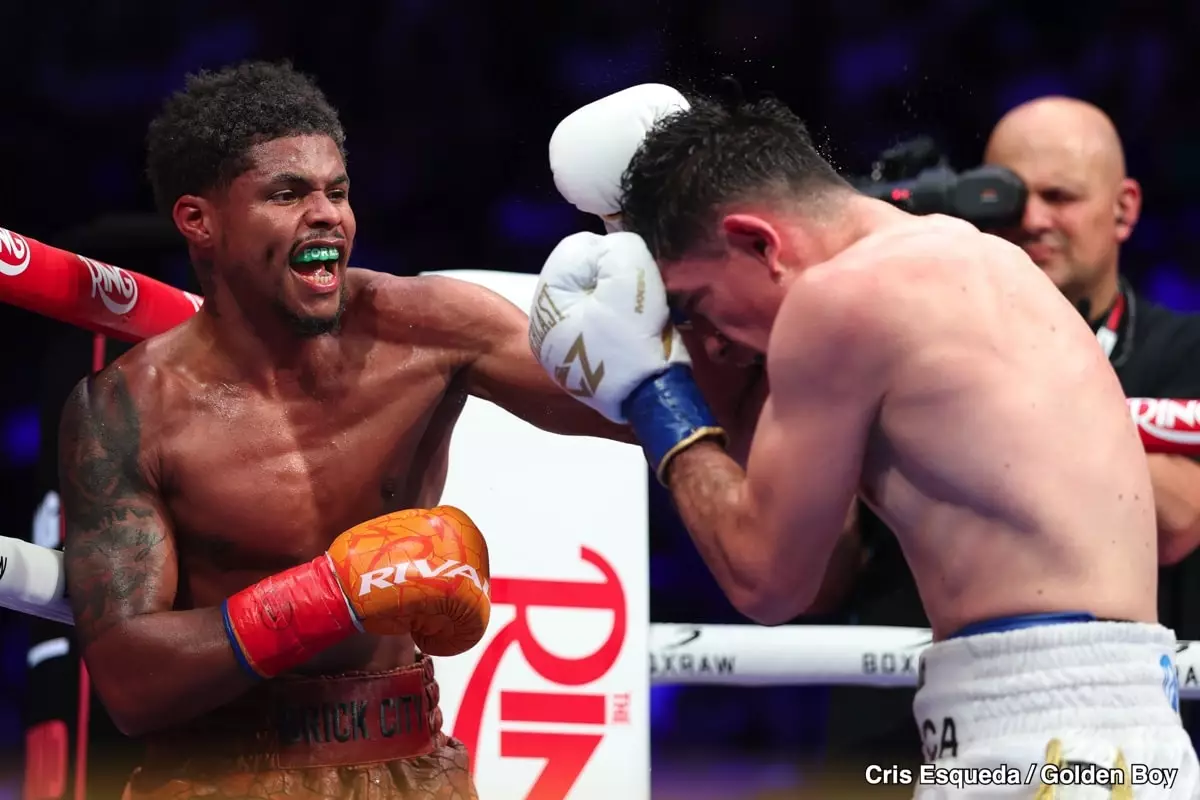Shakur Stevenson’s recent triumph over William Zepeda was a masterclass in boxing resilience and skill. While some critics argue that the scorecards—119-109 and 118-110—were overly generous, they cannot deny Stevenson’s deserving victory. His performance showcased a blend of aggression, tactical precision, and mental toughness, especially after weathering an early scare. Yet, the truly compelling aspect lies beyond the scorecards: Stevenson’s bold declaration of himself as the top dog at 135 pounds. It’s a statement that stirs debate about credibility and legacy within the division. Is his win enough to crown him as the best? That depends on future challengers and on whether he can sustain this narrative with consistent, high-level performances.
The Magnetism of a High-Stakes Showdown
What elevates Stevenson’s call-out of Gervonta “Tank” Davis isn’t just the fighter’s confidence—it’s the narrative of potential greatness intertwined with controversy. A fight between Stevenson and Davis would be epitomized as a clash of styles, personalities, and legacies, capable of capturing the boxing world’s imagination. Yet, the road to that showdown is fraught. Davis’s recent legal troubles and personal issues cast shadows over the readiness for a high-profile bout. In boxing, timing can be everything, and this legal controversy could stall or delay such a historic matchup. Meanwhile, Davis’s muted response, and the unconfirmed rumors of a postponed fight with Lamont Roach Jr., add layers of intrigue and uncertainty. Fans eagerly await clarity, but the underlying reality is that the division’s hierarchy remains fluid and unpredictable.
The Real Measure of Greatness in Boxing
Stevenson’s post-fight bravado stirs the debate about what it truly takes to be regarded as the division’s best. Is it a flawless record? Or is it the ability to face the toughest opponents and emerge victorious? Stevenson’s undefeated 24-0 record with 11 knockouts is impressive, but in boxing’s landscape, perception often trumps raw numbers. The current crop of contenders—Davis, Haney, Loma—each bring their own claims to the throne. Stevenson believes he belongs at the top, but boxing’s history teaches us that a single fight can redefine a career overnight. For Stevenson, the path is clear: not only must he beat better opposition but also demonstrate mental fortitude and a willingness to take risks that define true champions.
The Road Ahead: A Divided Spectrum of Opportunity
The future of the lightweight division hinges on external factors beyond the ring—legal issues, negotiations, and fighters’ willingness to face the toughest challenges. If Davis’s legal entanglements resolve favorably, a showdown with Stevenson becomes feasible—and arguably inevitable. But the sport’s landscape can shift rapidly, and strategic delays might dilute the division’s momentum. Meanwhile, other fighters are waiting in the wings, eager to stake their claim. For Stevenson, the stakes are higher than ever; it’s about cementing a legacy through action, not words. As boxing fans, we are left to wonder: will Stevenson’s ambitions propel him to greatness or leave him caught in the shadows of unfulfilled promise? The division’s answer will come only in time, as history’s pages await to be written.

